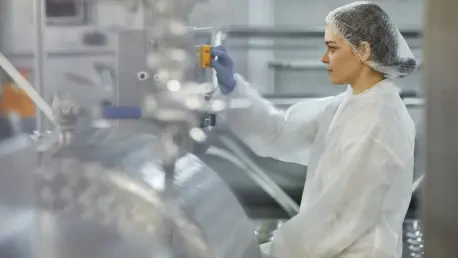In an age where consumers demand more transparency than ever about the sources of their food, the origin and journey of ingredients are under scrutiny like never before. As daunting issues such as food waste and inefficiencies in food supply chains continue to plague the industry, a remarkable technology promises transformative changes: blockchain. This digital ledger is revolutionizing how foods are traced, verified, and assured for quality.
Unveiling the Potential of Blockchain in Food Production
Blockchain’s penetration into the food industry is not merely a technological trend but a response to mounting demands for clarity and accountability in food production. As consumers become more assertive about their expectations for ethical sourcing and sustainability, firms must adapt to these new imperatives. As a reliable record keeper, blockchain is increasingly vital in a market striving for sustainable practices and enhanced supply chain oversight.
With regulatory bodies amplifying pressure on food manufacturers to exhibit clearer traceability, blockchain provides the essential framework for compliance. This technology enables the recording of every transaction within the food manufacturing process, establishing a provable chain of custody for each ingredient from farm to fork.
Insights and Transformations in Supply Chains
Blockchain’s application within food supply chains yields unparalleled transparency, allowing manufacturers like Tyson Foods, General Mills, and Cargill to redefine operational effectiveness. By facilitating real-time visibility of food products, these companies mitigate risks associated with food safety incidents, improving overall supply chain efficiency. Tyson Foods, for instance, harnesses blockchain to verify the origin of poultry products, aiding in rapid response during recalls and quality checks.
Blockchain also supports ambitious sustainability commitments. Firms use this technology to authenticate the ethical sourcing of essential raw materials such as palm oil and cocoa, thereby enhancing their brand’s authenticity and customer trust.
Expert Endorsements and Research Perspectives
Prominent voices within the industry, including blockchain experts, recognize its vast transformative capacity. Insights from companies like Mondelez International and Unilever emphasize how blockchain optimizes supply chain management and upholds rigorous food safety standards. Research substantiates these claims, indicating significant improvements in operational transparency and trust.
As Mondelez International employs blockchain to reinforce its sustainability endeavors, the transparency of the supply chain is bolstered by immutable records, ensuring that product sources align with ethical standards. This not only strengthens customer confidence but also aligns with broader environmental goals.
Strategies for Implementing Blockchain
Pathways to integrating blockchain within food supply chains are diverse yet practical. Companies like Nestlé and Kraft Heinz have successfully implemented strategies to leverage this technology for sustainability objectives. Nestlé collaborates with IBM Food Trust to enable meticulous tracking of critical ingredients, thereby enhancing supply chain precision and reducing waste.
Moreover, partnerships with technology innovators like SAP’s GreenToken platform empower organizations to tailor blockchain solutions to their unique needs, promoting effective collaboration for digital transformation. The shift toward blockchain is an indicator of the food industry’s commitment to improving overarching operations.
The Road Ahead
Blockchain has been a catalyst for transformation in the food manufacturing arena, offering deeper insights into ingredient authenticity and supply chain integrity. The technology’s potential to reduce environmental impacts while preserving product quality has been pivotal for companies striving to align their practices with modern consumer expectations. Looking forward, businesses should continue to explore blockchain as a versatile tool for promoting sustainable and efficient practices, thus fulfilling both current and future demands for transparency and accountability.









